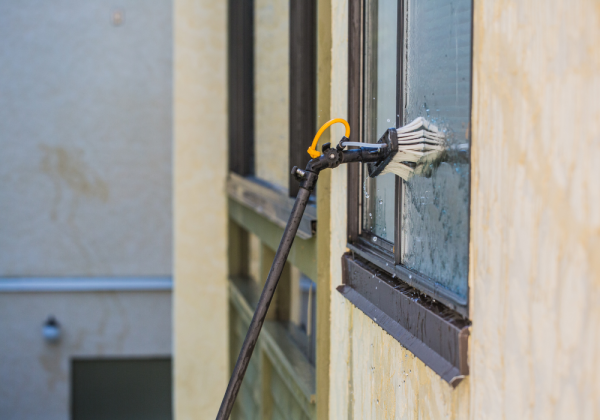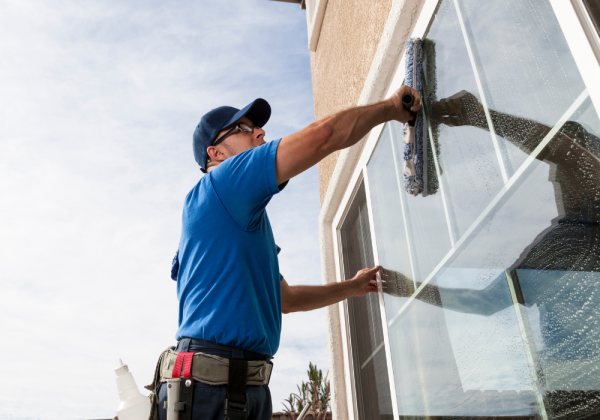Windows are the eyes of your home, offering a view of the outside world while letting in natural light. But how often do we consider their cleanliness as part of our home maintenance routine? Regular window cleaning is crucial not only for aesthetic reasons but also for maintaining the overall health and longevity of your windows. Clean windows can transform your home’s appearance, improve indoor air quality, and even contribute to better energy efficiency. In this blog post, we’ll explore how often you should clean your windows, offer seasonal tips, and provide expert advice on maintaining those crystal-clear views all year round.
How Often Should You Clean Your Windows?
Seasonal Guide to Window Cleaning
Spring Cleaning: Spring is synonymous with cleaning, making it the perfect season to give your windows a thorough wash. Pollen, rain, and the remnants of winter grime can build up on your windows, obstructing your view and making your home feel less inviting. In spring, aim to clean your windows both inside and out to start the season fresh.
Summer Shine: The bright, sunny days of summer highlight every streak and smudge on your windows. Frequent thunderstorms can also leave water spots and dirt behind. It’s advisable to clean your windows at least once during the summer to maintain a clear, sparkling view. Use this opportunity to check for any damage caused by the intense summer sun or sudden storms.
Fall Freshness: Fall brings cooler weather and falling leaves, which can lead to clogged gutters and dirt accumulation on your windows. Cleaning your windows in the fall prepares them for the coming winter months, ensuring that you won’t be dealing with grime when it’s too cold to clean. Aim for one thorough cleaning session before the temperature drops significantly.
Winter Woes: Although winter might seem like an odd time to clean windows, it’s essential to remove any salt residue and grime from snowstorms and road treatments. Clean windows can also help maximize the limited winter daylight that streams into your home. A mid-winter clean, particularly on the inside, can make your home feel brighter and more welcoming.
Tools and Techniques for Effective Window Cleaning
 Essential Tools for Sparkling Windows
Essential Tools for Sparkling Windows
Investing in the right tools can make window cleaning much easier and more effective. Some essential items include:
- Squeegees for streak-free finishes.
- Microfiber cloths for wiping down frames and sills.
- Extension poles for reaching high windows safely.
- Buckets and scrubbers to tackle grime.
Eco-Friendly Cleaning Solutions
Instead of using harsh chemicals, opt for eco-friendly cleaning solutions. A simple mixture of water, vinegar, and a bit of dish soap can work wonders on your windows. This solution is not only better for the environment but also safe for your family and pets.
Techniques for a Flawless Finish
Start by dusting off loose dirt and debris from the window frames and sills. Then, apply your cleaning solution generously and use a squeegee to wipe it off in a smooth, continuous motion. Wipe the squeegee blade after each pass to avoid streaks. For stubborn spots, a microfiber cloth or a soft-bristled brush can help remove them without scratching the glass.
Signs Your Windows Need Cleaning
Common Indicators of Dirty Windows
Visible Streaks and Smudges: Streaks and smudges are the most obvious signs that your windows need cleaning. They can be caused by rain, fingerprints, or even insects. Regular cleaning can prevent these from becoming permanent marks.
Reduced Natural Light: Dirty windows can block natural light, making your home feel dim and gloomy. If you notice that your rooms aren’t as bright as they used to be, it might be time for a window cleaning session.
Condensation and Mold: Condensation between window panes or mold growth around the edges can indicate that your windows need immediate attention. These issues not only obstruct your view but can also affect your health and the structural integrity of your windows.
DIY vs. Professional Window Cleaning Services
The DIY Approach
Pros:
- Cost-Effective: Cleaning your windows yourself can save money.
- Flexible Schedule: You can clean your windows whenever it’s convenient for you.
Cons:
- Time-Consuming: Thorough window cleaning can take up a lot of time.
- Safety Concerns: Reaching high windows can be dangerous without proper equipment.
 Professional Window Cleaning Services
Professional Window Cleaning Services
Pros:
- Expertise and Equipment: Professionals have the skills and tools to clean windows efficiently and safely.
- Time-Saving: Hiring a professional allows you to focus on other tasks.
Cons:
- Cost: Professional services can be expensive, depending on the size and number of windows.
Window Maintenance Tips to Extend Their Lifespan
Regular Inspections
Conduct regular inspections to check for cracks, leaks, or other damages. Early detection can prevent minor issues from becoming major problems, saving you time and money in the long run.
Proper Sealing
Ensure that your windows are properly sealed to prevent air leaks and water infiltration. This not only protects your windows but also improves your home’s energy efficiency.
Cleaning the Frames and Sills
Don’t neglect the frames and sills during your cleaning routine. Dust and dirt can accumulate in these areas, leading to mould growth and other issues. Use a vacuum or a soft brush to remove debris, and wipe down the surfaces with a mild cleaning solution.
Maintaining clean windows is an essential aspect of home care that goes beyond aesthetics. By incorporating regular window cleaning into your seasonal maintenance routine, you can enjoy clearer views, brighter interiors, and a healthier living environment. Whether you choose to tackle the task yourself or hire professionals, the benefits are well worth the effort. Remember, clean windows contribute to the overall well-being of your home and its inhabitants.
